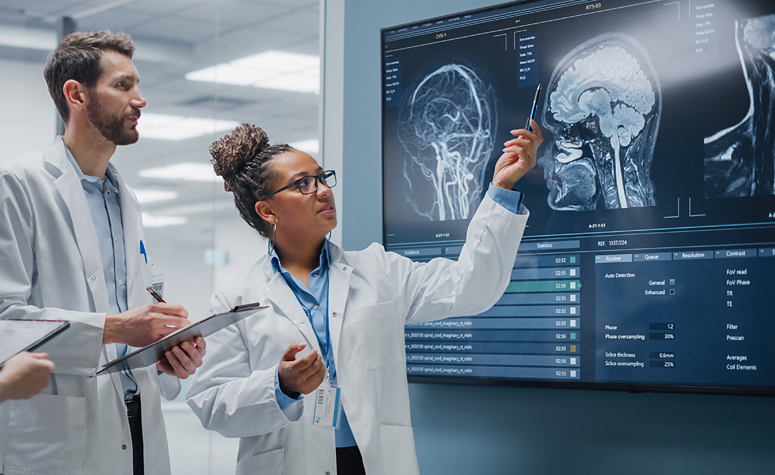The Disease Model of Addiction Explained
Addiction, a complex ailment concerning the brain, is acknowledged as a chronic disease that requires continuous treatment, management, and monitoring throughout an individual’s life. This theory perceives addiction not as a mere outcome of choice but as a compulsive disorder brought about by chemical alterations in the brain due to persistent misuse of substances like drugs and alcohol.

Defining the Disease Model of Addiction
Central to the disease model of addiction is the concept of the loss of control, primarily instigated by substance abuse. This model shows that those suffering from addiction often cannot cease their substance use independently without proper treatment or resources. Addiction, in this model, is identified as a chronic, relapsing brain disorder, with relapse rates similar to those of other chronic illnesses such as diabetes, hypertension, and asthma, ranging between 40% and 60%.
The history of the disease model of addiction
Traditionally, the medical model required only an abnormal condition causing distress or dysfunction for a disease classification. However, the modern approach to addiction, acknowledging changes in the brain’s mesolimbic pathway, expands this previous definition. It also recognises that addiction can be influenced by a blend of sociological, psychological, and biological factors, even if the exact mechanisms of these influences remain partially elusive. Under this contemporary medical perspective, addiction has been therefore categorised as a disease.

Fast Access to Residential Treatment
We are currently able to offer fast access to private inpatient treatment.
Please call us today and speak to one of our expert advisors.
Call today in confidence: 0800 0148 970
What are the sources of addiction in the disease model?
The disease model of addiction characterises it as a condition with environmental, genetic, neurological, and biological origins.
Biological sources of addiction
This concept implies that a person’s distinct physiology can contribute to addiction. Some individuals might find a substance so pleasurable that avoiding it becomes difficult, whereas others may not experience the same level of pleasure or difficulty.
Neurological sources of addiction
Recent developments in neuroscience have provided significant support for the brain disease model of addiction. These studies reveal that people vary in their brain functions and their ability to manage impulsive desires with rational thought.
Genetic sources of addiction
Genetics can influence the severity of substance abuse. It’s estimated that around 50% of the risk for addiction can be linked to genetic factors, making certain individuals more prone to the condition due to their genetic makeup.
Environmental sources
Environmental elements also play a significant role in the development of substance use disorders. Factors like high stress levels, childhood trauma, peer pressure, and minimal parental involvement can influence an individual’s likelihood to experiment with addictive substances. Evidence suggests that early exposure to alcohol or drugs can heighten the risk of future addiction.
Classifying Addiction as a Brain Disease
Most activities surrounding addiction occur within the brain, profoundly influencing its functionality and structure.
The habitual misuse of drugs leads to significant changes in the brain’s architecture and its operational mechanisms. With continued substance abuse, the user’s capacity for self-regulation and decision-making deteriorates, while impulses to consume more of the drug intensify.
The brain’s reward system, subjected to constant stimulation by the substance, becomes less responsive. This alteration impacts how the brain experiences motivation and joy. The presence of the substance amplifies conditioned responses, fuelling cravings and creating a sense of discomfort or negativity when the substance is absent.
Cessation of drug use triggers emotional and motivational withdrawal symptoms. The brain area responsible for decision-making, executive functions, self-regulation, and impulse control is compromised, elevating the likelihood of a relapse.

How Substance Use Physically Changes the Brain
The physical impact of alcohol or drug abuse on the brain is significant, causing lasting damage to crucial functions and areas. These changes form the basis for the brain disorder that makes it difficult to stop substance abuse.
Drugs and alcohol, binding to the brain’s receptor cells, triggering the release of neurotransmitters like serotonin and dopamine. This release creates sensations of relaxation, euphoria, and pleasure. As these substances infiltrate the brain, it becomes less inclined to produce these neurotransmitters independently. Consequently, the brain diminishes its natural production of dopamine, serotonin, and other neurochemicals, as their release is artificially stimulated by substance use.
This decrease affects the brain’s receptors and its risk/reward system. The increased level of neurochemicals leads to tolerance and dependency, eventually resulting in physical or psychological addiction. These processes alter the brain’s physical state, necessitating extensive effort to return to normalcy.
Signs of an addiction to look out for
Recognising the signs of addiction is crucial for early intervention. These signs often manifest in various forms, such as:

- Persistent cravings for alcohol or drugs
- Developing a tolerance to the substance
- Experiencing withdrawal symptoms upon reducing substance use
- Substance abuse impeding daily responsibilities and obligations
- Losing interest in activities once enjoyed, due to substance use
- Continued substance use despite adverse physical or social effects
Treatment Under the Disease Model of Addiction
The disease model of addiction acknowledges the feasibility of adequate treatment. The treatment plan depends greatly on your specific needs and objectives. Rehab facilities offer two types of programmes: inpatient and outpatient treatments. In inpatient treatment, patients reside at the rehab centre full-time, for durations varying from several weeks to months. Outpatient treatment allows patients to commute from their homes or sober living houses.

Finding Reliable Rehabilitation Centres
The majority of individuals find solace and support in residential treatment centres. These establishments offer immediate assistance and quality aftercare, ensuring outstanding outcomes. To locate a trustworthy centre, verify that they are accredited and possess all the necessary tools tailored to address your specific addiction needs.
Research into the Disease Model of Addiction
Addiction is a condition that impacts the reward system in the brain, particularly influencing motivation and pleasure, leading to alterations in behaviour, emotions, and cognition. The ongoing debate regarding whether addiction is a disease or a behavioural issue has spurred extensive research, attracting a range of criticisms both in favour and against. Studies focusing on the neurological foundations of addiction have demonstrated that certain individuals may possess traits increasing their susceptibility to addiction. This research has enhanced scientific understanding of which brain regions are implicated in addiction, and their functions in individuals without addiction.
Controversy About the Disease Model of Addiction
The concept that drug addiction is a disease is surrounded by significant controversy. The main criticisms come from proponents of the life-process model of addiction. According to this model, addiction is seen as a source of satisfaction and a habitual response, rather than a disease.
Supporters of this viewpoint argue that addiction should not be labelled as a disease or disorder, as the biological mechanisms underpinning addictive behaviour are yet to be conclusively identified. They maintain that overcoming addiction is possible through personal determination and by mending interpersonal relationships.
FREE Addiction Assessment
If you or a loved one are struggling with addiction, we understand the challenges you’re facing and we’re here to offer compassionate help.
Our highly trained advisers are available to speak to you right away, simply call 0808 252 3379 today.
We can discuss your concerns in complete confidence, explore the options for treatment, and help you to understand what will work best for you.
We’ll also help you to book your free addiction assessment there and then, with appointments usually available within only a few days.
We understand that taking the first step can be the most difficult, but we’re here to support – with no pressure or judgement.
Professional and compassionate help is just a phone call or click away.




